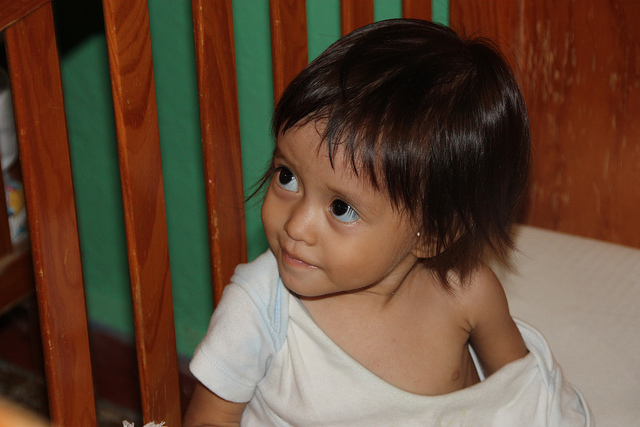There are many types of malnutrition that exist today; among them is marasmus. Marasmus is a type of malnutrition that is caused by a severe lack of protein-energy. Marasmus can lead to a dangerous drop in body functions because not enough energy is produced. Although there are numerous causes of marasmus, the four main ones are improper feeding, infections such as syphilis or tuberculosis that affect the body’s ability for efficient nutrient intake, congenital weaknesses such congenital heart disease, and poor sanitary conditions that make it likelier to spread disease. This phenomenon is most often seen in developing countries worldwide, with marasmus being more prevalent in children.
Symptoms of marasmus include a skeletal-thin body, dry skin, brittle hair, and dizziness, along with diarrhea, irritable behavior, and dehydration. In children, further consequences include respiratory infections, intellectual disabilities, and stunted growth. If marasmus is serious enough, a person may develop kwashiorkor, which additionally causes large accumulations of fluid in lower legs, feet, arms, hands, and face. However, a person is able to have both diseases simultaneously, characterized by combined symptoms of fluid buildup, dehydration, and an extreme loss of weight. Thus, it is important to recognize and treat marasmus as soon as possible, since prolonged marasmus can be fatal.
Image Source: Emmanuel Arewa
Treatment options for marasmus include efficient feeding tubes to the veins and stomach. Since those afflicted with marasmus lose the ability to properly digest a normal amount of food, feeding tubes help their body slowly gain normal amounts of fat reserves. Thus, small amounts of food are necessary to let the body adjust. A diet rich in nutrients, carbohydrates, and protein is recommended; however, full recovery can still take several months or more, as other complications such as dehydration may also hinder good progress in recovery.
Remember, prevention is always one of the key things for a healthy body! A well-balanced diet, including dairy products for energy and growth and fruits and vegetables for nutrients, can go a long way in preventing any type of malnutrition. Sanitation and hygiene need to be promoted to prevent the spread of disease, which can further exacerbate the symptoms of a person close to malnutrition. So let’s all do our part to raise awareness and improve conditions around the world.
Feature Image Source: Bethania: Wendy, 10 mis by Eglwys Bresbyteraidd Cymru – The Presbyterian Church










